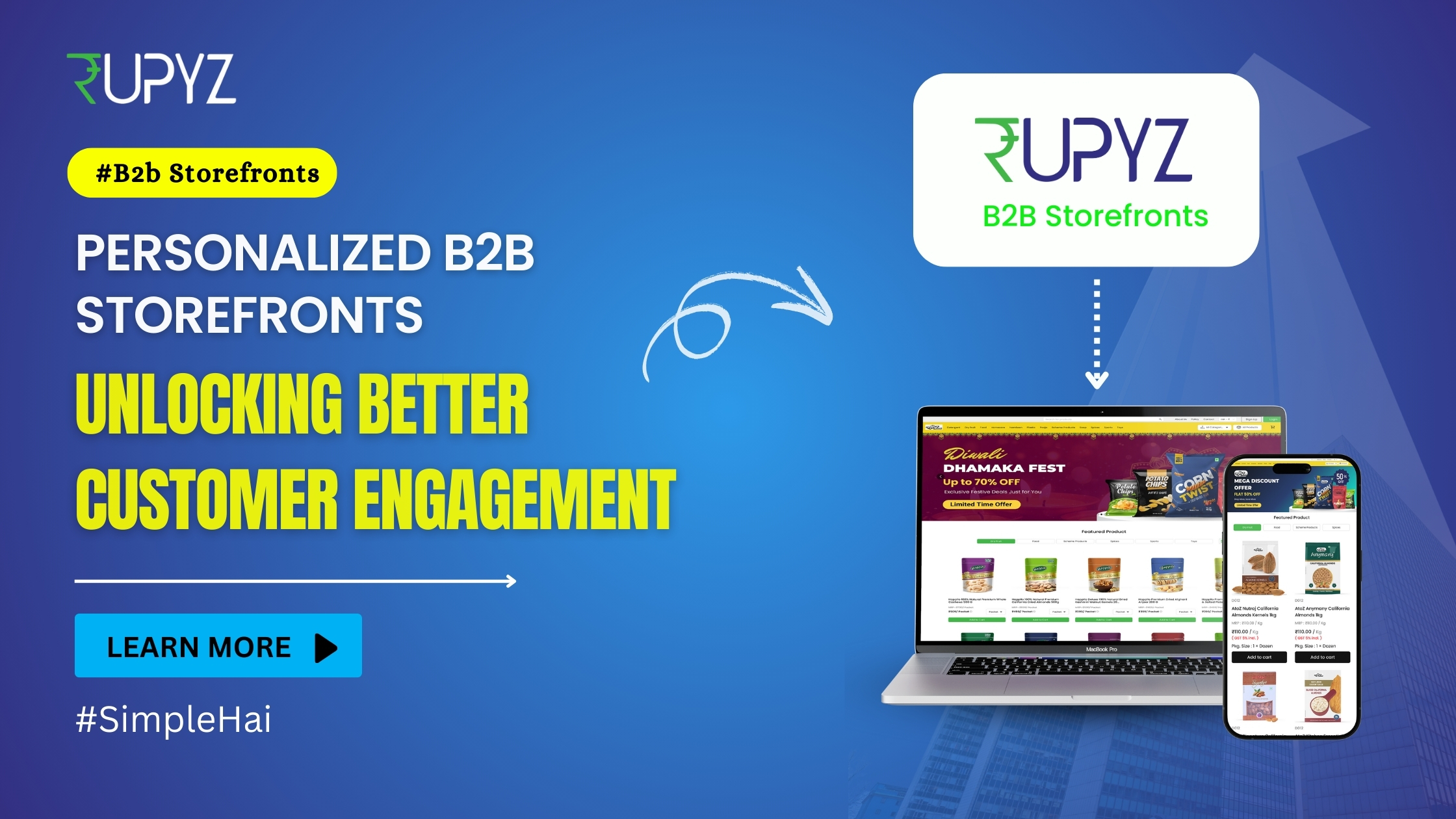
The Role of Personalization in B2B Commerce Storefronts
In the rapidly evolving world of B2B commerce, personalization has emerged as a defining factor for success. No longer just a B2C phenomenon, personalization in B2B e-commerce is now an expectation, not a luxury. As millennial buyers-digital natives who value relevance and efficiency-become the dominant force in procurement, B2B storefronts must adapt to deliver tailored experiences that drive engagement, loyalty, and revenue growth.
Why Personalization Matters in B2B Commerce
B2B buyers are sophisticated, informed, and pressed for time. They expect the same level of intuitive, relevant, and seamless experience they get as consumers. According to recent research, 66% of B2B buyers want a more personalized experience in their professional lives than in their personal ones. This shift is driven by several factors:
- Complex buying journeys: Multiple stakeholders, approval workflows, and custom requirements make B2B buying inherently more complex.
- Large product catalogs: Navigating thousands of SKUs without guidance can be overwhelming.
- Contract-based pricing: Buyers expect to see their negotiated prices, not generic rates.
- Expectation of efficiency: Millennial buyers demand quick, self-guided, and relevant solutions.
Personalization addresses these challenges by making every interaction more relevant and efficient, ultimately fostering deeper customer relationships and higher conversion rates.
Key Personalization Strategies for B2B Storefronts
Here are the key personalization strategies that can enhance the customer engagement and retain loyalty:
1. Customer-Specific Catalogs and Pricing
Unlike B2C, B2B buyers often have unique catalogs and pricing based on contracts, purchase history, or business segment. Modern platforms allow you to:
- Show only relevant products and services to each customer segment.
- Display negotiated prices, volume discounts, and custom bundles.
- Highlight products based on industry, location, or buying behavior.
Example:
A construction supplier uses its e-commerce platform to show commercial contractors different product sets and pricing than residential builders, ensuring each buyer sees only what’s relevant to them.
2. Personalized Product Recommendations
Need a report filtered by product, rep, or geography? With Rupyz, it’s just a few taps. Customize charts, KPIs, and timelines — no tech skills needed.
3. Role-Based Access and Team-Based Buying
B2B purchases often involve teams with different roles-researchers, approvers, buyers, and finance. Personalization means providing each user with the right access and information:
- Researchers see technical specs and availability.
- Managers review and approve orders.Finance can download invoices and check credit terms.
This approach mirrors real-world workflows and streamlines the buying process.
4. Personalized Site Search and Navigation
With large catalogs, search is critical. Personalized search results-powered by AI and behavioral data-help buyers find what they need faster. Features include:
- Search suggestions based on previous queries and purchases.
- Faceted search that prioritizes frequently ordered items.
- Dynamic re-ranking of results to surface the most relevant products.
Statistics:
58% of B2B merchants report strong outcomes from personalized site search, and 75% of buyers will switch sites if they can’t quickly find what they need.
5. Dynamic Content and Marketing
Personalized emails, banners, and landing pages based on buyer behavior, industry, and preferences keep buyers engaged and informed. Automated workflows can trigger:
- Reorder reminders for consumables.
- Special offers on complementary products.
- Educational content tailored to the buyer’s role or industry.
Real-World Success Stories
1. Marico’s Digital Engagement with Retailers
Marico, a major FMCG player, uses its B2B platform to:
- Segment retailers by geography, store size, and buying patterns.
- Push personalized product recommendations and combo offers.
- Trigger event-based notifications (e.g., stock replenishment reminders, festival-specific promotions) tailored to each retailer’s sales cycle.
This helps Marico drive higher engagement, increase order frequency, and strengthen retailer loyalty by addressing specific needs and opportunities for every partner.
2. Dabur’s Retailer-Centric Promotions
Dabur has adopted digital tools to personalize its engagement with the vast network of small retailers:
- Personalized schemes and discounts are rolled out based on the retailer’s past sales performance and inventory turnover.
- The B2B portal allows retailers to access customized catalogs, reorder frequently purchased SKUs, and receive targeted marketing content.
- Data-driven insights help Dabur’s sales teams recommend the right product mix for each store, improving both sales and satisfaction
3. Rupyz's B2B Storefront
A regional FMCG brand uses Rupyz’s B2B platform to:
- Recommend products based on retailer purchase history and local demand
- Offer dynamic, personalized pricing
- Provide exclusive, tailored promotions
- Simplify and speed up reordering
This personalized approach boosts retailer engagement and drives higher sales across the network.
How to Implement Personalization in Your B2B Storefront
- Leverage Data:
Start by collecting and analyzing customer data-purchase history, browsing behavior, industry, company size, and roles. - Segment Your Audience:
Use dynamic segmentation to group customers by behavior, contract terms, or industry needs. - Invest in Technology:
Choose an e-commerce platform with robust personalization features, such as customer-specific catalogs, AI-powered recommendations, and role-based access controls. - Integrate Systems:
Connect your CRM, ERP, and marketing automation tools to create a unified view of each customer. - Test and Optimize:
Continuously monitor engagement and conversion metrics and refine your personalization strategies based on real-world results.
The Future: Personalization as a Competitive Advantage
As B2B e-commerce continues to mature, personalization will only grow in importance. In 2025 and beyond, companies that leverage real-time data to create individualized experiences will win customer loyalty, increase profitability, and stand out in a crowded marketplace.
Make Every Buyer Feel Special-Launch Your Personalized Storefront Now!
Personalization in B2B commerce is no longer optional-it’s essential. By understanding your buyers, leveraging the right technology, and continuously optimizing your approach, you can transform your storefront into a powerful engine for growth and customer satisfaction.
Ready to unlock the power of personalization for your B2B Ecommerce storefront? Rupyz can help you build tailored, data-driven experiences that delight buyers and drive results.
Transform your B2B Business
We would love to give a comprehensive walk through of our system & demonstrate how we can contribute to your growth story.
Book A Demo

